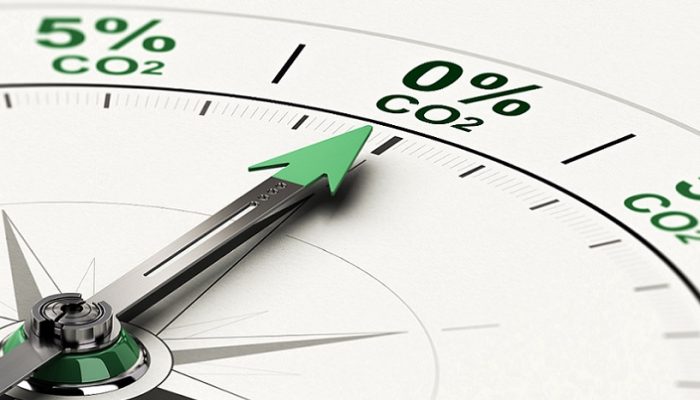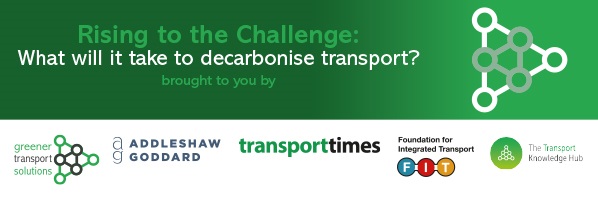
The pledge to reduce greenhouse gas emissions by 78% by 2035 puts the UK at the forefront of international ambition. However, in its recent progress report the Committee on Climate Change highlights the gaping chasm between climate change rhetoric and policy. “This defining year for the UK’s climate credentials has been marred by uncertainty and delay to a host of new climate strategies”.
The yet to be published Transport Decarbonisation Plan (TDP) is one of those delayed strategies. Transport is the biggest emitting sector of the UK economy, and there is a lot riding on the TDP. However, in light of the scale of the challenge perhaps it should not come as a great surprise that the Department for Transport has failed so far to produce a plan that meets the requirements of the Climate Change Committee’s sixth carbon budget advice.
Given that so many critical aspects lie beyond its purview, one might ask whether it is ‘mission impossible’ for DfT to develop a comprehensive Transport Decarbonisation Plan. Transport is a derived demand so the decarbonisation of transport must be planned in the context of the wider economy. We need a whole-systems approach that reflects the shift to digital connectivity, and the integration of transport with land-use planning, energy and green finance.
Digitalisation increasingly drives large parts of the economy, and therefore the choices that we make about whether we even need to travel. However, our current system of regulation is designed precisely not to address the integration of transport into our digital world and the wider economy in a decarbonisation context. The siloed nature of government militates against the joined-up approach needed to ensure that new housing avoids building in car dependency.
Progress is also impeded by a lack of clarity and focus about who should be doing what and where power should lie. Coordination of the different aspects of policy essential for decarbonisation is easier at the local level, but England has one of the most centralised systems of government in the world. The disjointed and fragmented nature of devolution means that too often local leaders are reliant on ad hoc project-based funding streams and lack the powers and resources to plan on an integrated long-term basis.
There are also inherent contradictions in Government policy. Net zero requires higher utilisation of a smaller vehicle fleet but expanding UK’s car manufacturing sector is a key part of Government’s strategy to ‘level up’ the country. The ongoing freeze in fuel duty has increased traffic and CO2 emissions but is of benefit to the significant number of low-income households without adequate public transport provision and totally reliant on their (often older and more polluting) cars.
One area that ought to elicit a more coherent policy response from DfT is the Road Investment Strategy 2 (RIS2). Transport for Quality of Life has estimated that the total additional emissions from now to 2032 from the RIS2 £27.4 billion major roads programme will be 20 MtCO2, at a time when emissions from the Strategic Road Network need to go down by 167 MtCO2. TfQL conclude that this will negate 80% of potential carbon savings from EVs on the SRN between now and 2032.
Fewer trips by car and by plane will be required to achieve net zero. However, Government appears to be sending the wrong signals. The RIS2 investment programme, freezing fuel duty for the 11th consecutive year, continuing with above inflation rail fare rises and consulting on the reduction of APD for domestic flights will hardly encourage a switch to more sustainable modes. Meanwhile the number of registered cars in the UK has risen by 11.5% over the past decade.
Our climate is heating up at great speed. As David Attenborough reminded the G7 world leaders’ summit in Cornwall, the decisions we make in this decade are the most important in human history. However, despite all the green rhetoric, money has piled into aviation and car industries since the start of the pandemic. The G7 have spent $189 billion supporting oil, gas and coal. By contrast only $147 billion has been spent on clean forms of energy. So much for building back better.
Climate change is the defining challenge of our era. A leaked draft report by the Intergovernmental Panel on Climate Change warns that there is a series of thresholds beyond which recovery from climate breakdown may become impossible. It states bleakly that “life on Earth can recover from a drastic climate shift by evolving into a new species and creating new ecosystems… humans cannot.”
The stakes could hardly be higher. Our thinking needs to change if we are to rise to the scale of the challenge.
Rising to the Challenge – Webinar Series September 2021
Greener Transport Solutions is collaborating with Addleshaw Goddard, Foundation for Integrated Transport, Transport Times and the Transport Knowledge Hub on a series of webinars that will explore what it will take to decarbonise transport. The series will culminate in the publication of ‘A Manifesto for Decarbonising Transport’ to be published Autumn 2021.

About the Author
This post was written by Claire Haigh. Founder & CEO of Greener Vision & Executive Director of the Transport Knowledge Hub. Claire was previously CEO of Greener Transport Solutions (2021-2022) and CEO of Greener Journeys (2009-2020).
